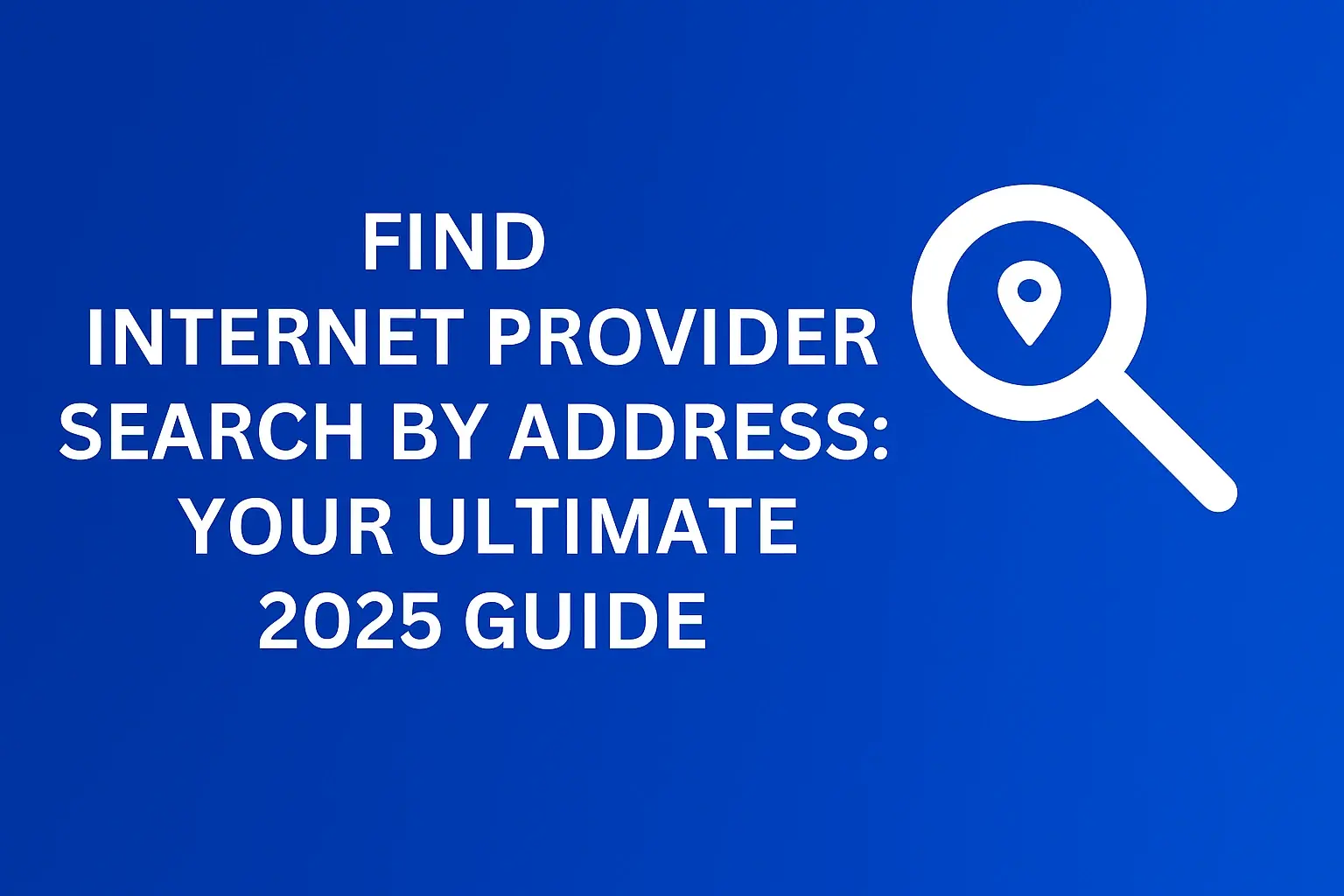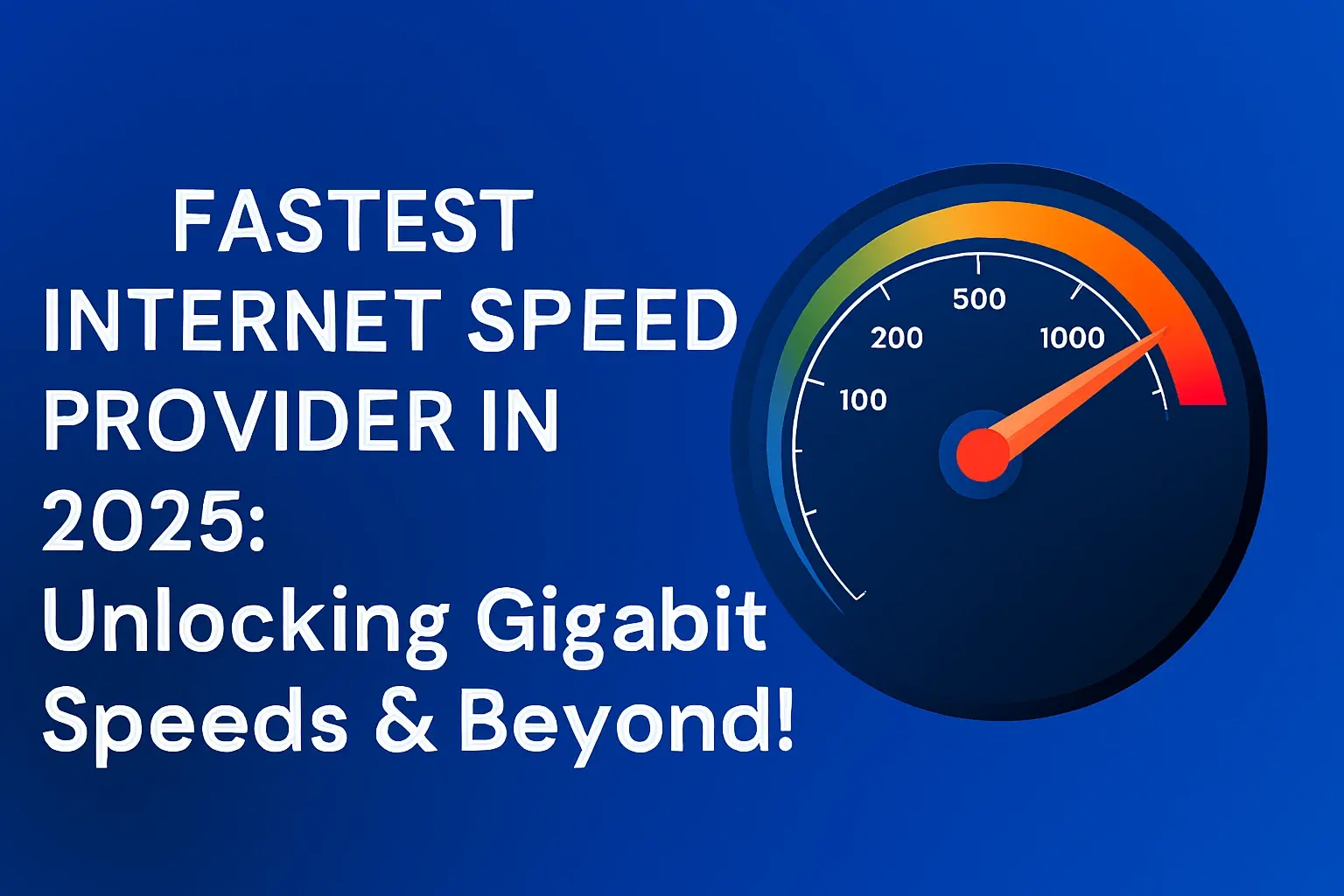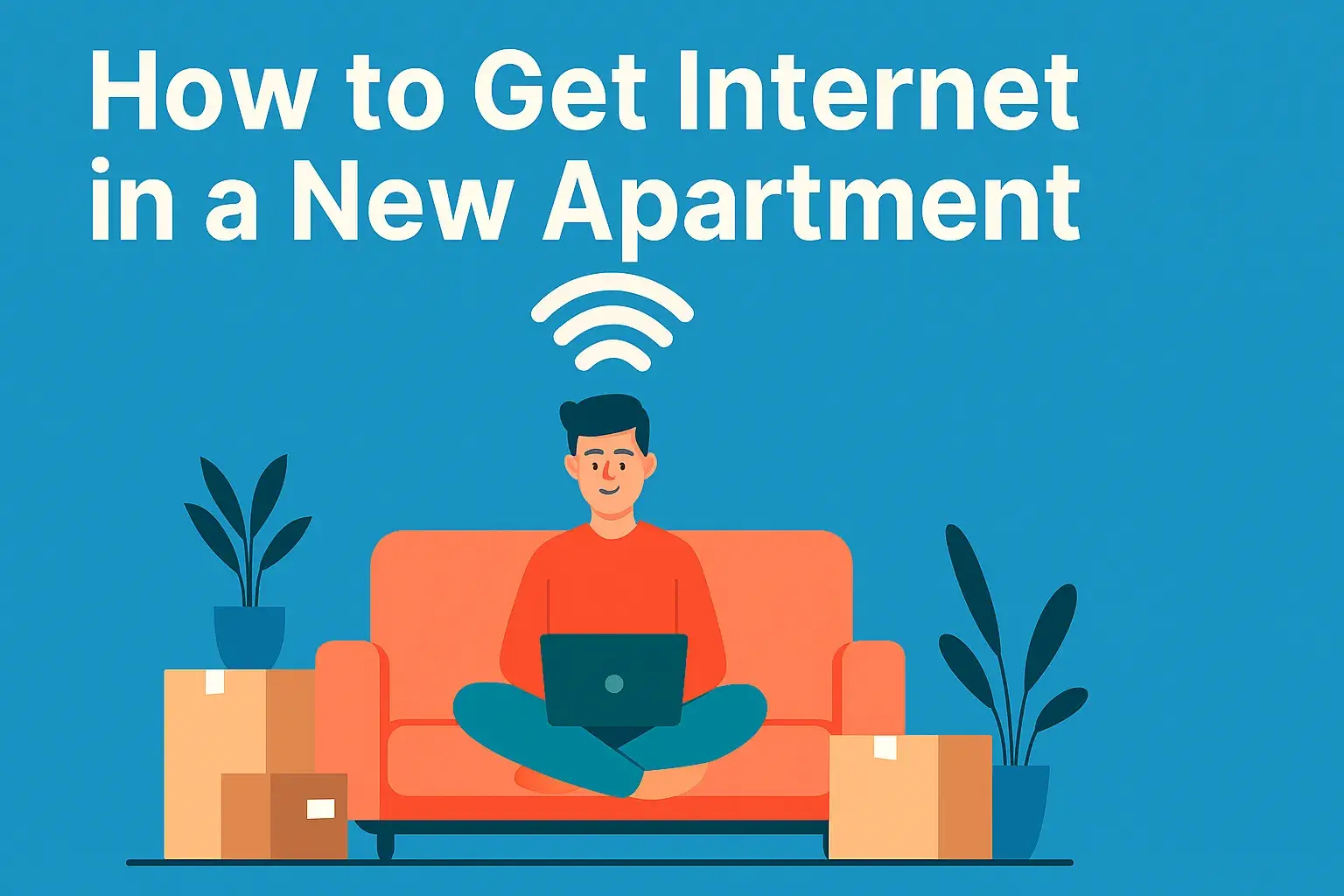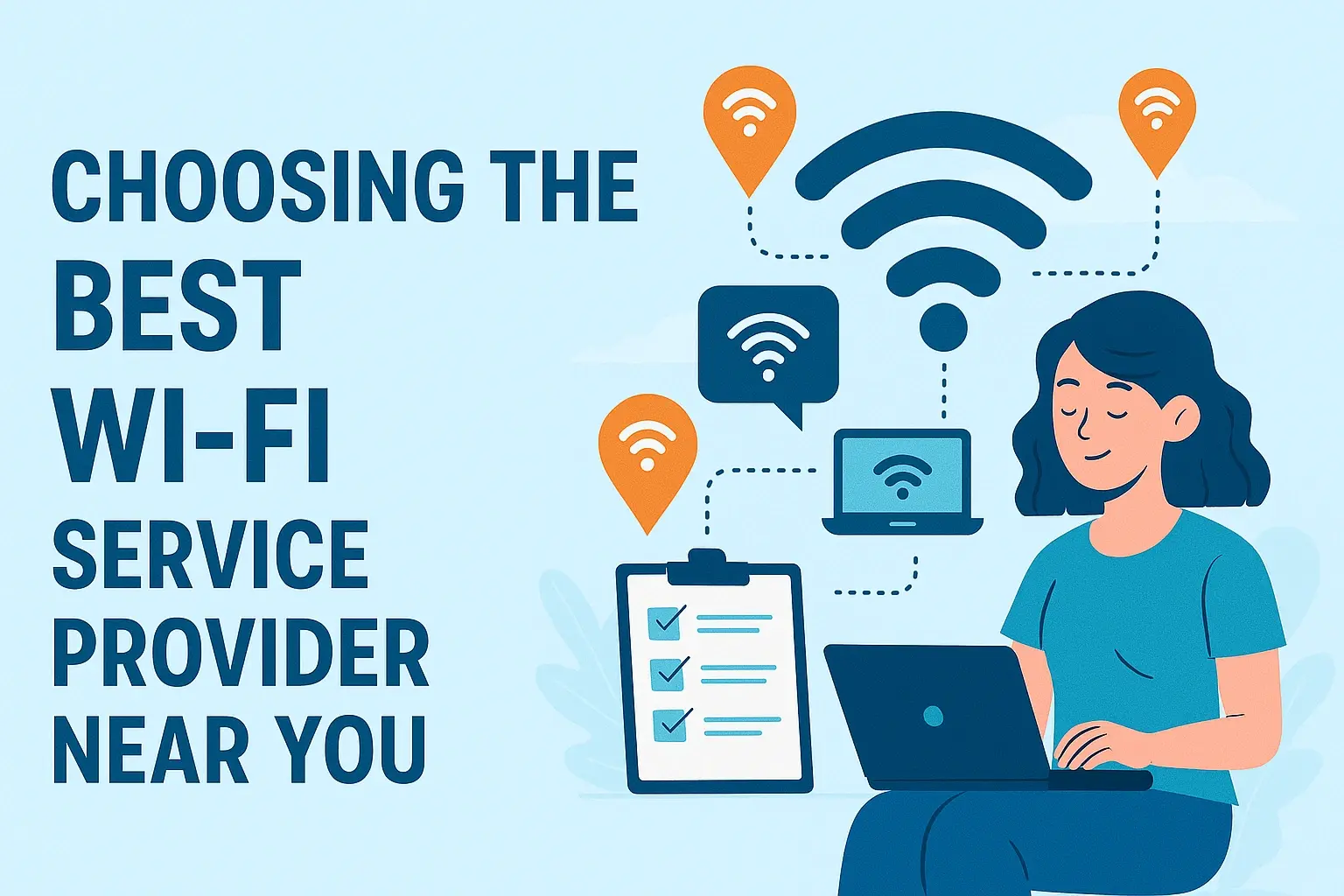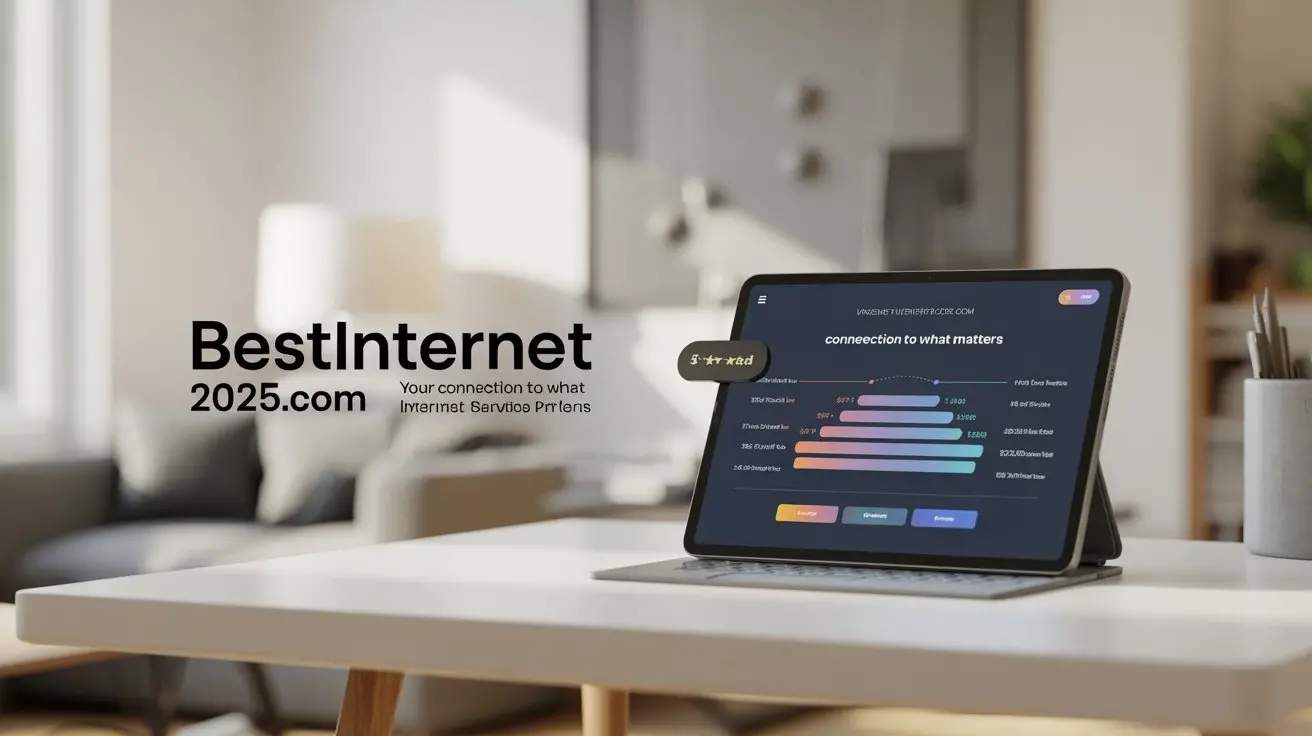Comparing 5G Home Internet and Fiber: A Detailed Analysis
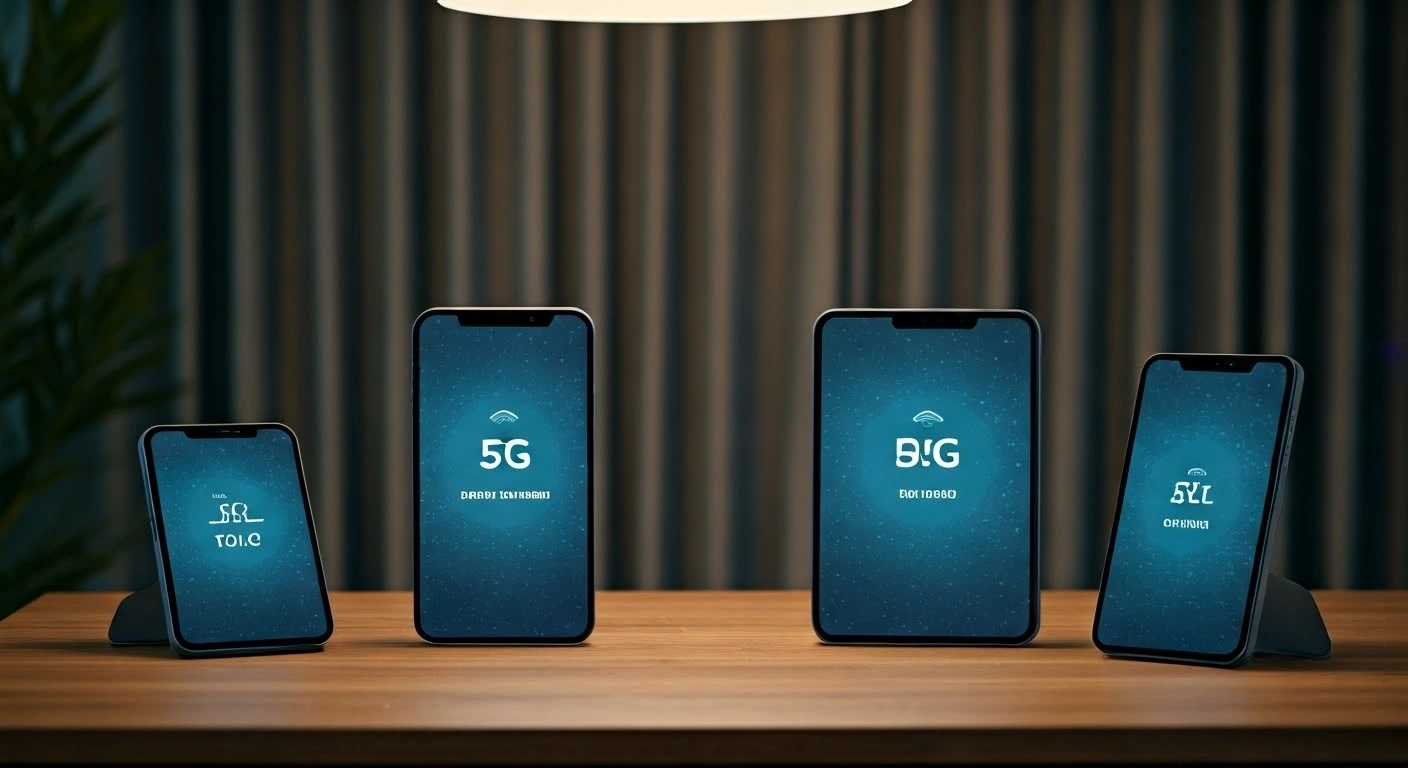
Choosing the best home internet service can feel overwhelming. There are many options available. Cable internet has been popular for a long time. But now, fibre internet and 5G home internet are rising in popularity. With so many choices, it can be hard to decide which one is best for you. That's why we created this easy guide to compare fibre internet and 5G home internet.
Understanding the Basics of 5G and Fiber Internet
In the changing world of telecommunications, it is very important to understand the basics of new technologies. 5G and fibre internet are two major steps forward in connectivity. Each has its benefits and downsides. As we explore the digital environment, it is vital to know the main differences between these two internet services to make smart choices.
This comparison will look at 5G home internet and fibre internet. We will explain how they work, what their strengths are, and their limitations. By learning about these options, we can choose the best internet solution for our needs and preferences.
What is 5G Home Internet?
5G home internet is a wireless internet service that connects through cell networks. It does not use old cable or fibre optic lines. Instead, it relies on the same network that helps your smartphone access the internet.
Setting up 5G home internet usually means having a receiver that gets signals from a nearby cell tower. This receiver then sends signals to a router, which creates a Wi-Fi network in your home. Supporters of 5G home internet say it provides faster speeds compared to old wireless standards. It also can reach places where cable or fibre optic internet is not available.
However, you should keep in mind that the actual speeds and reliability of 5G home internet can change. Factors like how far you are from the cell tower, any signal interference, and how busy the network is can all impact your connection.
The Fundamentals of Fiber Internet
Fibre internet, known as optic internet, is a top choice for internet service. It is famous for its high speed and reliability. Unlike cable internet, which uses copper wires, fibre internet uses thin glass or plastic fibres. This lets it send data as light pulses.
Thanks to this advanced tech, fibre internet offers much faster data speeds and less delay than other internet services. Fibre optic cables do not lose signal easily over long distances. This means you get a steady and good-quality internet experience.
On top of that, fibre internet provides equal upload and download speeds. This makes it great for video calls, online games, and transferring large files. Its strong performance and solid setup make the Internet the best option for both homes and businesses.
Speed Comparison: 5G vs. Fiber
When we look at the speeds of 5G and fibre internet, we see that both can provide high download and upload rates. Yet, the speeds you get can change a lot. This change can be due to where you are, how busy the network is, and the internet service plans you choose.
Fibre internet sends data using light, making it faster and having less delay than 5G. Still, 5G technology is improving all the time. In places where 5G is strong, it can come close to matching the speeds of fibre internet.
How Fast is 5G Home Internet?
5G home internet providers claim they can offer download speeds up to 1 Gbps (gigabits per second) or more. This high speed is making 5G an attractive choice for many people looking at home internet options, compared to traditional cable or fibre internet. However, it is important to note that these speeds are only in perfect conditions and real speeds can change based on various factors.
Here are some things that can affect 5G home internet speeds:
- Network congestion: When many users are online at the same time, the network gets busy. This can lower speeds for everyone.
- Distance from cell tower: Just like with mobile phones, how close you are to a cell tower affects the quality and speed of your 5G internet connection.
- Line-of-sight obstructions: Objects like buildings and trees can block 5G signals. This can lead to slower speeds.
The Speed of Fiber Internet Explained
Fibre internet, especially fibre-to-the-home (FTTH), is the fastest type of internet available. It can provide download and upload speeds as high as 10 Gbps. This level of speed is much better than other internet types.
Here are some key benefits of fibre internet regarding speed:
- Equal upload and download speeds: Fiber internet usually has the same speeds for uploading and downloading. This helps a lot with activities like video calls, online gaming, and using cloud services.
- Lower delays: Fiber optic cables send data quickly with few delays. This means less lag and a smoother online experience, which is great for things like gaming and video chats.
- Reliable performance: Fiber internet is less affected by problems like network traffic or bad weather, so it offers users stable and dependable service.
Reliability and Coverage: 5G and Fiber Face-Off
5G and fibre internet both offer better connectivity, but they are quite different. This comparison looks at the good and bad sides of each type. It focuses on things like how developed the infrastructure is, how easily signals can be interrupted, and how reliable the performance is.
Knowing these important points will help consumers choose the best option for their internet needs. This means knowing what they need for a stable connection and what is available in their area.
5G Internet Reliability Concerns
5G home internet is a promising service, but it is still new. It hasn’t yet reached the same reliability as options like fibre internet. There are several reasons for these reliability issues:
- Network immaturity: 5G is a new technology. It is still being developed, and its stability can be very different from one place to another.
- Signal interference: 5G uses radio waves that can get disrupted by things like weather, buildings, and other signals. This can cause problems with service or changes in speed.
- Limited coverage: Even though it is growing quickly, 5G is not available everywhere. Most of the coverage is in city and suburban areas. Many rural areas still do not have this service.
Fiber's Edge in Consistent Connectivity
Fibre internet stands out because of its outstanding reliability and steady connection. This is mainly due to its strong infrastructure and advanced ways of sending data. Unlike wireless technology, which can lose signals, fibre optic cables send data using light pulses. This makes them safe from outside disruptions.
Here are some key points that make fibre reliable:
- Dedicated infrastructure: Fiber optic cables are buried underground. This limits damage from bad weather and outside signal problems, making the connection more reliable.
- Lower attenuation: Fiber optic cables lose less signal over long distances than standard copper wires. This means you get steady speeds and a strong connection, even far from the internet service provider's centre.
- Mature technology: Fiber optic technology has been tested and improved for many years. It has a strong history of reliability and strength in many uses, making it a trusted choice for internet service.
Cost Analysis: Is 5G or Fiber More Affordable?
When looking at whether 5G or fibre internet is affordable, just comparing the monthly prices is not enough. You should also think about installation costs, equipment fees, data caps, and the overall value of each technology in terms of speed and reliability.
5G home internet plans might look cheaper at first, but data caps and changing speeds can affect costs later and user experience. On the other hand, fibre internet may have higher starting costs but often provides steady speeds, unlimited data, and better reliability. This could make the higher cost worth it in the long run.
Breaking Down 5G Internet Costs
Understanding the costs associated with 5G home internet requires looking beyond the advertised monthly price. While some providers may offer introductory discounts or promotional periods, it's essential to consider potential extra costs that can impact your overall expenses:
- Data Caps: Some 5G home internet plans impose data caps, limiting the amount of data you can use per month. Exceeding these limits may lead to additional fees or speed throttling, potentially slowing your internet connection.
It's essential to carefully review the terms and conditions of specific 5G home internet plans to understand the total cost of service and avoid unexpected charges.
The Price of Fiber Internet Access
Fibre internet is known for its fast speeds and reliability. It usually costs more than other services like cable or DSL. However, the actual cost of fibre internet can vary due to a few factors:
- Availability in your area: The cost can change based on how many providers are in your region.
- Speed tiers: Internet service providers offer different fibre internet plans. These plans vary in speed and price so you can pick one that fits your needs and budget.
- Bundled services: Choosing bundled services that include fibre internet, TV, phone, or other options can help you save money on your monthly bill.
Even though fibre internet may seem expensive at first, think about the long-term benefits. It offers consistent performance, unlimited data, and less chance of slowdowns. This makes it a good choice for those who want a top-notch internet service.
Conclusion
In conclusion, both 5G home internet and fibre internet have good points and some downsides. 5G can provide high speeds and is likely to be available in many areas. On the other hand, fibre internet is known for its strong reliability and steady connection. Going with 5G might be cheaper at first, but fibre often gives better value over time. When deciding between the two, think about your needs for speed, reliability, and budget. This will help you choose wisely. Whether you choose the new technology of 5G or the trusted reliability of fibre internet, make sure it fits your internet needs for the best experience.
Faq
Can 5G home internet be as fast as fiber?
5G home internet can be faster than some other choices. However, it probably won't reach the reliable speed and high capacity that fiber internet offers. This is true even if there are only a few data caps.
Is fiber internet more reliable than 5G?
Yes, fiber internet is usually more dependable than 5G home internet. Its special setup is not easily affected by signal problems. This helps it to keep a steady performance and reliable connection.
Will 5G eventually replace fiber internet in homes?
5G probably won’t completely take over fiber internet in homes. 5G is easier to use, but fiber internet is faster, more reliable, and can manage a lot of data. This makes fiber internet a lasting choice for internet service.
